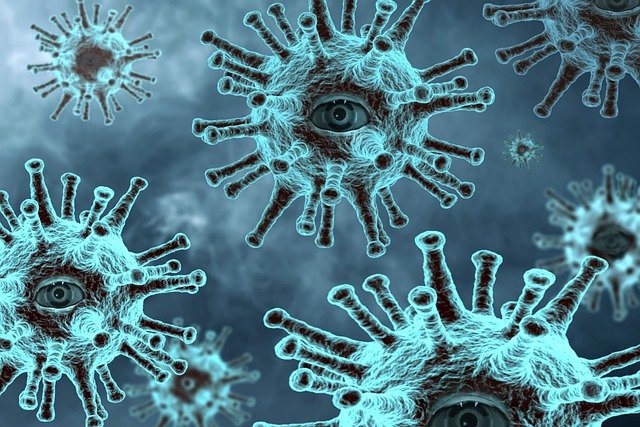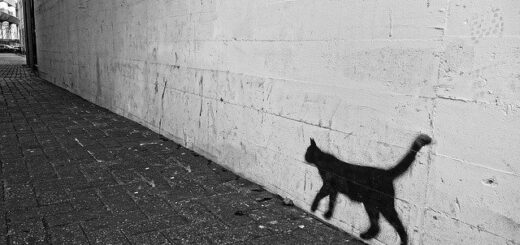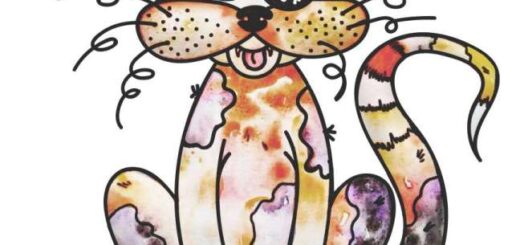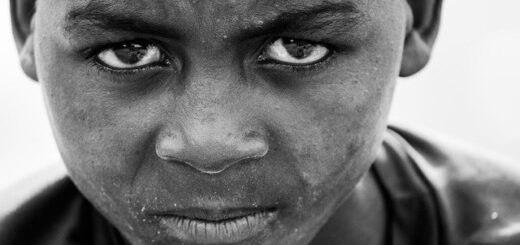Tomorrow by Alice Lam

Tomorrow by Alice Lam
2060
It began as an ordinary morning as Mirai made and ate eggs on wholemeal toast, washed down with a large cup of coffee.
Usually she would spend half an hour responding to e-comms on her laptop before leaving for either the lab or Prospect Tower.
Today however, instead of sitting at her computer where an inviting cafetière awaited, she crouched before the desk. It was vintage–over a hundred years old–but she liked its irregular grain and the rings from countless mugs. The single drawer creaked as she jiggled it open, and she rummaged around for the package. Just as her fingertips grazed it, something else vied for her attention in the shadows. She paused, a tight sensation closing round her throat. It had been five years since she had last held the photo and she stiffened momentarily.
She lifted it out, and despite the jarring feeling that had now spread down to her torso. she gently cradled the holographic picture. Enjoying a hike on a warm spring day, her husband stood with his arms around their girls, their son off to one side, lanky and shy. Mirai stroked her thumb over the faces of man and boy. Memories and emotions swirled and intertwined. Before she could stop it, a wave of grief rose and crashed over her, the picture ablur with silent tears.
Dabbing her eyes on her jacket sleeve, she waited for an indeterminable length of time while the pain flooded over her again and again. But she knew it would pass; it always did. She replaced the photo. In her loss she had learnt strength.
A splash of cold water to the face at the kitchen sink helped her refocus. Once again Mirai located the cigarette-sized package and slipped it into a compartment hidden within the seam in the underside of her work bag. Satisfied with its appearance, or disappearance, she slid the bag strap over her shoulder and strode to the local monorail station. More recollections, this time of school runs and family days out, which seemed not so long ago. Of course, now the girls were independent young women, forced to survive like so many others in challenging times.
Only a few years ago her younger daughter, Anya, managed a cosy but always buzzing Italian restaurant in town. She delighted in showing off new dishes to family and friends and her pumpkin gnocchi with burnt butter was a house specialty. Older by two years, Charlie, had followed her dream of qualifying as a fixed wing pilot, ferrying passengers over dramatic coastlines and picturesque vineyards. They barely had time to enjoy their personal successes before the pandemic crashed through their world.
2050
One day everything was normal, merely the usual winter sniffles going round in offices and schools. Over the following weeks, a third of the male population were struck down, completely unable to work. Many self-quarantined at home, but rising numbers of males were hospitalised, struggling to breathe or with secondary pneumonia. When the wards finally overflowed and hospitals ran out of doctors and nurses, the eerily quiet community buildings were put to use as makeshift wards. The irony of men’s clubs turned into clinics was not lost on the people. Most of the sick were elderly or had underlying medical conditions that would explain their weakened immune systems.
Then–quite shockingly–even the healthy ones succumbed. Females were also going down with similar symptoms, but most fought back with vigour. It did not make sense.
The community tried to carry on as usual. Panic purchasing of rice, flour, beans and other household staples led to barren shelves, overpriced goods, followed by draconian rationing and subsequent looting of warehouses.
Top scientists identified the illness as a particularly contagious and lethal influenza virus–H20N15. They did not know from where it had originated, and standard antiviral treatments were found to be next to useless. It was not unusual to see medical staff with tears in their eyes, unable to relieve the symptoms of those with death etched in their immediate future.
By the time new flower buds were opening and magpies swooped to protect their hatchlings, more than ninety percent of men and boys had died. Mass cremations and memorial services became the norm, at least until large gatherings were banned. Florists were flush with cash, the less business-savvy subsequently out of business when they could not keep up with demand.
The holo-papers were full of the stench of death and dying, grief and hopelessness. Streets were as silent as churchyards; few places open due to the government’s decree of compulsory social distancing. There was a complete ban on public gatherings, and closures of schools, universities, offices, shopping malls, stadiums, even places of worship. The loss of the last was not a big issue, many having lost their faith during the months of the virus’ tsunamic destructive power. The only people regularly seen outside were police officers on street patrol, even more imposing than usual in their black respirators and face visors. Citizens became used to being questioned. What are you doing outside your home? Where are you going? Why do you need to use public transport? It was not long before other countries put an embargo on flights from this new terrible place.
A national emergency was declared by the self-selected emergency government, headed by an all-female team. Its rhetoric was a heady mixture of gentle empathy and rousing talk of rebuilding and reconstructing society. “No more homelessness! No more unemployment! No more sexism!” were the daily slogans. Indeed, the only programs transmitted on holo-TV were serial propaganda messages.
Everything took a backseat to essential services. Anya now drove a taxi–respirators of course mandatory for both driver and passengers–and Charlie worked as a labourer. Anya found she could tolerate the work, but Charlie was always complaining about the roughness of her hands and various aches and pains.
Mirai thought back to the conversation they had had, when they were all coming to terms with their new amputated family. The girls were teenagers, angry and afraid. It had been the grimmest of times, sympathy in short supply when most families were reeling from bereavements themselves.
A few weeks after the memorial service, the three were taking a weekend break in the bush. It was one of those steamy, humid days with aggressive metallic green blowflies attacking their eyes and mouths. They sloped along a dirt road, lined by overgrown grass and disused farm buildings. In the shadow of a broken-down tobacco drying barn, a rusty sign at the end of the trail proclaimed, “Welcome to Bridge Farm”.
“I don’t get it,” said Charlie. “Why did Dad and Ethan have to die? They were so healthy. And why so many men and boys? It’s not fair we’re still here.” She kicked a rock which was promptly swallowed up by a prickly bush.
“I know,” said Mirai. She started to put her arm around Charlie, whose eyes were shining, but felt her daughter tighten and pull away.
“Come on Mum, you’re a scientist, what do you think?”
Anya stood, hands on hips. “There’s stuff on the news but it’s all about Senator Amanda Stone and how she’s going to help us all make a fresh start. All politics, no one explaining what happened. How do we protect ourselves? Was it bioterrorism? Will it happen again? Could we be next?”
Mirai’s heart was pounding. Surely the girls were too young to hear the full truth, but she felt they deserved to know more, particularly given her part. She looked at each of her daughters in turn, struggling to decide whether they could deal with what she might say next. Finally, she could bear the tension no more. She swallowed. “Okay. This is going to be a little technical, so listen up.“
They looked at her expectantly.
As Mirai explained, she moved her hands through the air to illustrate her points. “Well, you’ve heard this virus is called H20N15. The ‘H’ refers to the protein spikes that allow the virus to identify receptors in host cells to get inside. In this case, this was with a high propensity, or attraction you could say, to male host cells. The ‘N’ helps the newly made virus particle–known as a virion–to break down the surface of host cell and escape, so it can get out and infect more cells.”
“What do the numbers mean?” demanded Anya.
“Essentially just variants of type of protein,” answered Mirai.
“How long does it take?” asked Charlie, curious despite herself. “From the virus getting in to replicating and escaping?
“Good question. From entry into host cell to escape, it takes about six hours.”
Charlie whistled. Anya looked down, twisting the hem of her shirt.
“Now, here’s the second part of the puzzle. You know females have two X chromosomes, and males have an X and a Y.”
The girls rolled their eyes simultaneously. Having similar heights, hair and eye colour, sometimes people mistook them for twins. Mirai almost smiled.
“The Y chromosome carries the ‘master switch’ gene that determines whether the baby will be male—XY, or female—XX. Over human existence, and even seen in other mammals from a hundred and sixty million years ago, the Y chromosome has been shrinking. The shrinking Y chromosome means it is less able to heal itself.”
They stopped in the middle of the road which had narrowed to a single trail. Even the thrum of the blowflies ceased.
“The Y chromosome is also weakening from more mutations, which means it is getting less able to fight infections like bacteria and viruses. A father passes it to his son, and there’s only one copy.”
“Ooh, girl power,” murmured Anya sarcastically.
Charlie elbowed her sister in the ribs. The only sound came from a family of sulphur-crested cockatoos and pink and grey galahs flying overhead. “What else?”
Mirai squatted down and picked a fluffy white dandelion head. “Self-pollinating. Solves a lot of problems, doesn’t it?” She blew gently onto the flower and the seeds dispersed in a sudden breeze.
The girls shared a sidelong glance with each other.
“You want to know how we got here. I owe you that. Just…I don’t want you to…please don’t hate me.”
“Mum, no!” exclaimed Anya, wrapping her arms around Mirai. “That won’t happen.”
The three sat down on the rough ground in the shade of the barn. She knew this was the moment where she could lose them forever. She took a deep breath. “Not long ago, I was heading a team of virologists. We were exploring the Y chromosome’s susceptibility to the flu virus.” She paused. “We used a flu virus that we had engineered for use only in the lab, for in-vitro specimens. It wasn’t supposed to leave the lab.” She almost wailed the last sentence and had to fight back tears. There was a heaviness in her chest that felt immovable.
Charlie leant back. Her face hardened.
Mirai continued. It was too late to stop now. “Things didn’t go as we had planned. Though we were only in the preliminary stages of designing an anti-viral treatment for infected cells, we also began to develop a vaccine to protect males in the event of a flu epidemic. You could say we were stretching ourselves too thinly. But work was going so well, it was exciting and there was real progress. Then one day…one day somebody in our lab leaked our research to someone in government.”
“Amanda Stone, right?” breathed Charlie. “I knew it.”
“Exactly,” said Mirai, voice small. She bowed her head. “Suddenly our funding was cut, and that’s why we officially lost our jobs. We were sworn to secrecy with the threat of violence and imprisonment if we didn’t comply.” She stared into the middle distance, haunted by the visceral memory of being awoken in the early hours by the heart-shuddering sound of a windowpane shattering. Thudding down the hallway. Then sitting up in bed, as she reached for her bedside lamp, a pair of burly men rushed into her room. One shone a dazzling torch into her face and clasped a cold steel edge to her throat. The other tersely warned her off sharing her research with anybody or he would guarantee she and her family would suffer dire consequences. She shook her head to clear the flashback.
Mirai went on. “Senator Stone and her political cronies then only needed to plan targeted dispersal of the virus—like domestic flights, railway stations–and once the population was decimated and those in the male-dominated government and other highly-paid jobs were toppled…”
Anya and Charlie were both holding each other and crying.
“Well, I think that’s enough for now,” said Mirai.
2060
As the train glided soundlessly towards the city centre, Mirai looked out the windows and marvelled at the sparse number of people out and about at what used to be rush hour. Most were women, of course, but there was something else. Few wore makeup or bothered with anything more than plain hairstyles and functional clothing. Fashion had almost been vanquished without men to judge and women to compete against. In any case, fashion was an unaffordable luxury for most.
Alighting from the train, she walked across the railway footbridge to the Corporation for Population Renewal, housed within Prospect Tower. Thirty stories high and constructed of geometric steel and reinforced frosted glass, it stood prominently and rather overbearingly on the main street. She took a moment to enjoy the feeling of the sun on her skin and faced the retinal scan to the side of the revolving door. Once through, she smiled as she approached the guard. Her legs felt shaky.
“ID and bag,” said the guard, who wasn’t the usual one. Her ID was scanned, belongings slowly rifled through, and laid out on the table. Phone. Laptop. Diagnostic kit. Specimen collection equipment. Purse. The guard took time patting her down. Finally, Mirai was allowed her bag and motioned to the lift.
At the second floor, Mirai presented her wrist to the door sensor after an even more keen-eyed guard rechecked her ID. She pulled her jacket around her. The air-conditioning seemed to be set to freezing today. She’d heard it was a deliberate ploy by the Corporation to keep the inmates docile and less likely to escape. The men might be survivors of the flu epidemic, yet they were no longer free men, having become valuable commodities. They were imprisoned by their ability to maintain lines of genetic material. Despite the cold, she felt a trickle of sweat run down her back and prayed it would not show.
In any case, few wished to escape their gilded cage. Those who tried ended up on chain gangs, slaves to the new government with no release date. No one had escaped a chain gang.
She glanced over the open plan lounge, soft furnishings and CCTV, gym and kitchenette stocked with pre-packaged food that complemented their daily multivitamins designed to optimise sperm health.
She spent an hour each with six inmates, performing health checks, collecting specimens, going through the motions.
Now it was Dimitri’s turn to be called to the interview room. There was a small window in the door for the guards to look through, should they have any cause for concern. He was as pale as the others; outdoor exercise having been banned after several inmates attempted to flee. She knew they had been shot dead, though the holo-papers reported them as suicides. The perks of being on the inner circle, she thought, jaw clenched.
At their last meeting, he had removed a tight roll of papers stored within the hollow of a bed leg and passed it to her while she pretended to check his blood pressure. That action had been the final catalyst for today.
“Don’t say anything,” she said, taking his hand and using tweezers to tent the skin of his wrist. Without warning, she inserted the ID microchip via a homemade plastic introducer with a wickedly sharpened point. Metal would have set off the detectors. He sucked in his breath. “In case we get separated.” She applied a tan dressing and he exhaled shakily.
“Keep your hand out,” she commanded. She took a plastic capsule from within her own mouth and tipped its granules into his hand. “Swallow this. Quickly.”
He hesitated.
“Now,” she commanded. “There’s no other way.”
Seeing her glance at the door, he complied, an element of distrust in his expression. Within a minute his head dropped to his chest and she quickly slipped her arms beneath his slumped shoulders and slid him to the floor where she placed him in recovery position. She rapped on the door. “Guard, I need an ambulance, driver only, doctor to accompany patient. Unconscious collapse,” she shouted.
She heard the guard bark on her radio.
Mirai felt as if time had slowed. All these months in the planning.
Sirens outside heralded an ambulance. Together she worked with the driver to load Dimitri onto a stretcher, down the lift and into the back of the van. Once underway, she made a show of adjusting his oxygen mask whilst surreptitiously unclasping her seatbelt and reaching into her bag.
At the edge of Chinatown, she leant forward to the driver and thrust the plastic implant gun into her neck until a drop of blood drizzled down to his shirt collar. “This contains the flu virus. Stop the van and get out. Do not touch the radio.”
The driver needed no second bidding and leapt out, stumbling towards the main road without looking back.
Only seconds later, a taxi swerved into the alleyway, fishtailing to a halt.
“Thank god,” she gasped.
“We don’t have long, Mum,” said Anya. “Is he in the back?”
“Yes, help me get him out. Dimitri, wake up.” She gently shook him and sleepily, he opened one eye, then the other.
They helped Dimitri into Anya’s car and a few hours later, barely a word spoken, they trundled along a familiar dirt track, then finally below the rusty sign for Bridge Farm and slowly pulled into a barn.
A net curtain twitched in the cottage window. Charlie opened the cottage door almost immediately. She looked alive in a way Mirai had never seen before. “Hurry, come inside. Anya will hide the car.”
Once inside the dingy lounge room, Dimitri sank into a filthy armchair. He looked older than his years. “The papers…?”
“The lawyers have just received them,” said Charlie.
“And are we in the news yet?” he asked, looking from Mirai to Charlie.
“Are we in the news?” said Charlie. “You can bet your microchip.” She switched on the TV and smiled.
It was the same on every channel.
“Prime Minister Amanda Stone has been arrested on charges of bioterrorism and genocide relating to the 2050 flu epidemic that saw Australia’s population fall by half.
“It has come to light that the Prime Minister may have been behind the outbreak in order to facilitate her rise in the previously all-male government. Reports are also being investigated of men being unjustly imprisoned. Prime Minister Stone’s notoriously extremist views on immigration, genetic diversification and misandry are believed to be cornerstones of her illegal actions.
“It has been confirmed that human rights lawyer Dimitri Berkovic will be counsel to the inquiry in conjunction with two U.N. international criminal lawyers, to be named shortly. Consultant virologist, Dr Mirai Alexandra will head a team of scientists who will collaborate with male flu survivors to drive antiviral and vaccine research.”
Mirai hugged Charlie, and threw an arm around Anya who had just walked in. They laughed, they cried. It felt like freefall.
Dimitri looked over at the trio of strong women, then closed his eyes and smiled. “A new chapter.”
THE END
Copyright Alice Lam 2020



